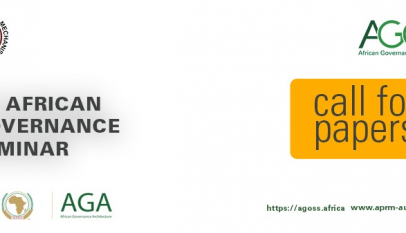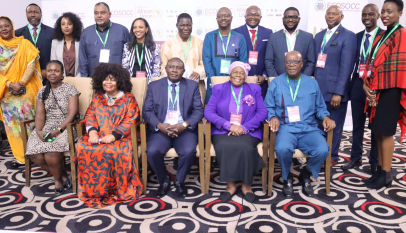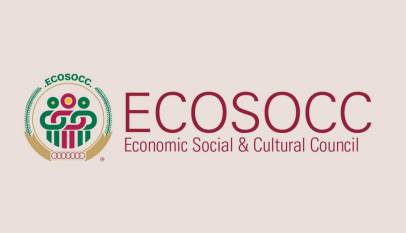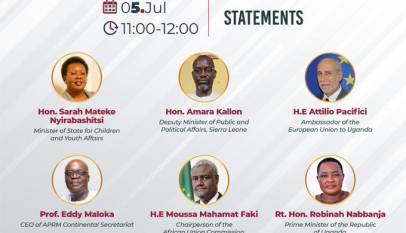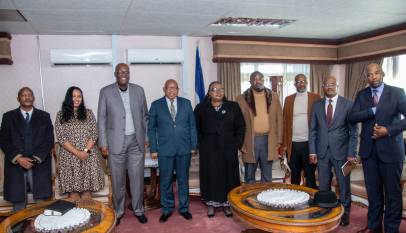INTERVIEW | AGA, APRM will ensure implementation of AGR’s recommendations – Salah Hammad
Salah Hammad, head of the African Governance Architecture (AGA) Secretariat, spoke about the inaugural Africa Governance Report (AGR), amongst other issues, at the recent launch of the AGR in Nairobi, Kenya
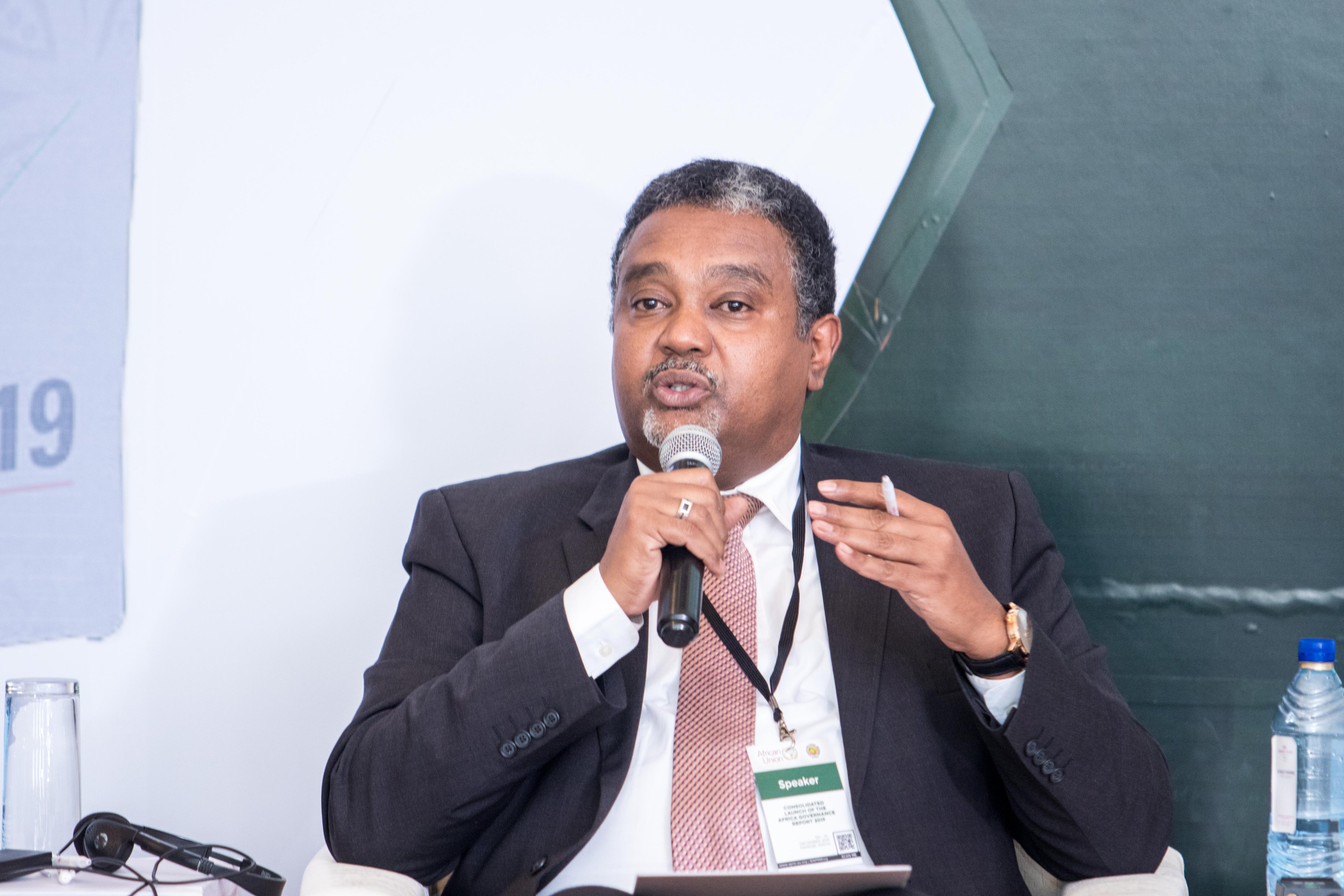
We have just concluded the launch of the inaugural Africa Governance Report (AGR). What are the specific takeaways for the AGA Secretariat from the launch?
As AGA Secretariat, we are quite happy with the outcome of this meeting, particularly the diversity of its participants which included members of the civil society, academia, media, as well as women and youth groups. I think it was the first time we are having such a diverse group of participants in the history of the African Peer Review Mechanism (APRM). It would have been great to have had Member States participated in this discussion.
However, I am still confident that we will be able to engage with Member States on the recommendations of the Report and the outcomes of its launch. Secondly, there was a sense of commitment on the part of the participants to share and disseminate the outcome of the report within their networks, which I think is a very good development that will help widened the dissemination of the report and make it known to the African people.
There are criticisms of the African Union and allied organisations regarding implementation of policies and reports such as the AGR. As AGA Secretariat, what commitment are you making in terms of following up with Member States to ensure they implement the recommendations of the AGR?
Well, the first point I will like to raise is that this Report was the first of its kind that was adopted by Member States without any objections by any of them – whether or not they are members of the APRM. So, I think the Report represents the hopes and aspirations of the AU Member States – of having a mechanism that will examine the situation at national level, identify the challenges and make recommendations on how best to address the challenges.
Moreover, all members of the AGA Platform, AU organs and the Regional Economic Communities (RECs) have made a commitment to support the Member States in terms of the implementation process. Another important issue is the engagement of African citizens in the process; the AGA Secretariat and APRM are committed to involving all sectors of society in the process including women and youth.
We have in fact began this process through the involvement of AU organs such as the Pan African Parliament (PAP); the African Court on Human and Peoples’ Rights (the Court), African Committee of Experts on the Rights and Welfare of the Child (Committee of Experts), African Union Advisory Board on Corruption and the RECs. Basically, all the AU organs and RECs are quite informed and aware about the Report.
Lastly, I will say there is a collective commitment on the part of all the stakeholders I have mentioned to work closely with our Member States to ensure implementation of the recommendations of the Report. The next point of action is to ensure the report is translated into all AU languages and also into some African languages so that it will be easily understood by African citizens. So, we are going to work with the APRM on the translation while at the same time continuing to popularize the Report among the African people.
I think the idea of the AGR’s translation into indigenous African languages is a great one; it will help ensure you are able to reach majority of African citizens. Into how many languages do you plan to translate it?
We have not decided yet but we are most likely going to select a language or two in each region of Africa, particularly the most widely spoken languages for each region. Some of the African languages are not written languages however, we will be able to translate it into the major languages.
The AGA Secretariat has also just concluded its annual High Level Dialogue (HLD) and Continental Youth Consultation under the theme: ‘Youth and Forced Displacement in Africa – Trends, Challenges and Prospects towards Durable Solutions.’ What was the outcome of the event?
This year’s High Level Dialogue, Continental Youth Consultation as well as the Gender Forum focused on the 2019 AU theme: ‘Refugees, Returnees and Internally Displaced Persons: Towards Durable Solutions for Forced Displacement in Africa,’ as declared by the Heads of State and Government. As AGA Secretariat, we believe the theme was timely because Africa is the host of the majority of the population of displaced persons in the world; between 26 and 27 million people are displaced across many African countries.
Kampala in Uganda was selected to host the High Level Dialogue in commemoration of the 10th anniversary of the adoption of the African Union Convention for the Protection and Assistance of Internally Displaced Persons in Africa also known as the Kampala Convention. We combined the theme of the year with the commemoration of the Kampala Convention where we brought about 350 participants from all over Africa to discuss this crisis facing African governments, so as to come up with durable solutions towards resolving the problem once and for all.
We had in attendance government ministers from Member States, ambassadors who are members of the Permanent Representatives Council (PRC) and also experts from the academia, civil society and the media. Very importantly, this year’s High Level Dialogue was unique in the sense that we had as participants, a good number of refugees, returnees and Internally Displaced Persons (IDPs).
We thought it was important to discuss all these issues in their presence because the issues concern them which mean their own side of the story and voices should also be heard. It was a very open, safe and interactive platform for the sharing of ideas and receiving of criticisms from the participants. We took note of the submissions of the participants; the outcome document will be presented before Permanent Representatives Committee (PRC), Executive Council and AU Assembly at the next AU Summit, with very clear recommendations on how to address this crisis.
The next summit is focused on the AU’s theme for 2020: “Silencing the Guns: Creating Conducive Conditions for Africa’s Development,” which is a climax of the Silencing the Guns in Africa campaign aimed at realizing a conflict-free continent, by 2020. Do you think we should continue setting these kinds of targets even if we are not able to achieve them?
When the target to silence the guns by 2020 was set it was done based on certain indicators and clear objectives that were agreed upon by all AU Member States; I think the AU and Regional Economic Committees have managed to silence the guns in many parts of Africa, to an extent. So, even if we cannot completely silenced the guns by 2020, I believe declaring 2020 as the year of silencing the guns was not a bad idea at all. Thanks to that declaration, we were able to sensitize member states and African citizens on the need to do whatever it takes to silence the guns.
Now, if we are unable to silence the guns by 2020, we should be able to review what had been achieved jointly by the AU and RECs within this period, plan to extend the deadline by a few years and then focus more on the current conflict zones in Africa towards achieving lasting peace. The good thing is that the campaign on silencing the guns have made many African people and governments committed towards achieving the target of silencing the guns towards achieving lasting peace on the continent.


